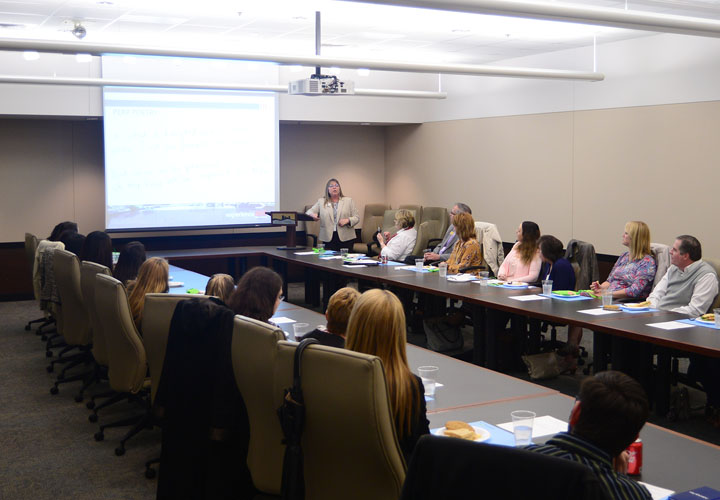Preventing and addressing fraud in international organizations

It’s hard to argue with the fact that technology has improved efficiencies and made our jobs easier every day. But that technology also opens the door for businesses to become the victims of potential fraud and embezzlement - and the problem goes beyond major, high-profile targets such as multinational businesses and large financial institutions.
That was the focus of a presentation to a joint meeting of the Chamber’s International Business Council and the Greater Ozarks International Trade Association on April 25. Angela Morelock, BKD managing partner and head of the firm’s forensic accounting and investigations team, offered a look at fraud issues. She covered fraud trends from the Association of Certified Fraud Examiners (ACFE) and talked about what organizations of all sizes – especially those that do business with international trade partners – should do to protect themselves.
The banking industry is the most common target of fraud, but it is by no means the only victim. Fraudsters also frequently target the government, manufacturing, health care and education sectors.
And the losses can be staggering. The 2016 ACFE Report to the Nations estimated that 5% of total revenue is lost to fraud and abuse each year – and more than half of victimized companies will recover nothing after the fraud is found.
How does it happen? It can occur any number of ways, whether it’s cybersecurity threats from outside actors or manipulation of accounts payable and internal documents by company employees.
“Angela’s presentation was outstanding and provided real-life examples of how everyday employees have devastated businesses through fraud and embezzlement,” said Dee King, corporate services development officer at Guaranty Bank, who attended the event and serves on the International Business Council. “For example, I was surprised to learn that 88% of people who are caught embezzling have no prior criminal history.”
Morelock offered some tips for companies to improve their odds of preventing or detecting fraudulent activity:
- Additional, ongoing training for accounting and bookkeeping personnel
- Segregation of bookkeeping and accounting duties whenever possible
- A verification process for changes in account info or wire transfer requests
- Purchasing cyber insurance coverage
- Installing an anonymous hotline for employees to report suspicious activity
King said she left the event with several good ideas on how her organization can protect itself.
“My biggest takeaway was that it’s important for every business to have a tip line, and regularly train and remind employees to use it,” she said. “I walked away with a better understanding of the top risks businesses face, and the steps that can be taken to mitigate those risks.”

